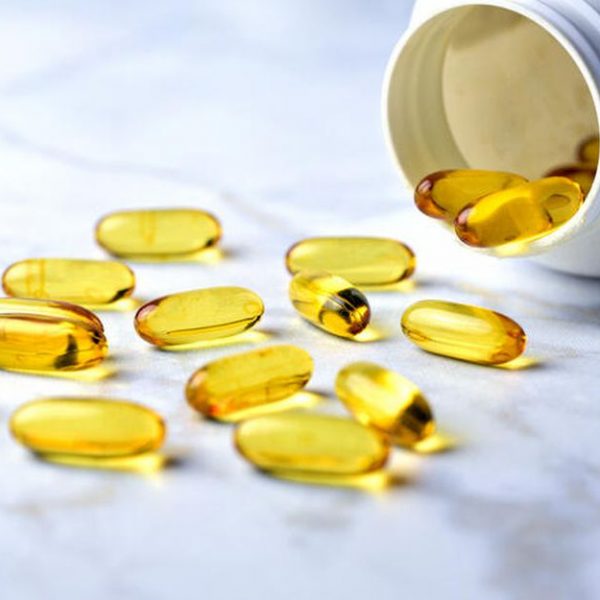Uterine fibroids are a fertility health issue we receive calls and emails about every day. While many women with fibroids don’t experience pain or problems getting pregnant, equally as many experience pain, increased menstrual bleeding, abdominal swelling, bladder or bowel problems, and fertility or pregnancy issues, causing them great concern whether they want to conceive or not in the future.
Fibroids are extremely common. Up to 80% of women will have fibroids by age 50. African American women are at the highest risk. The incidence of fibroids is 2-3 times greater in African American women than in Caucasian women. Researchers are not entirely sure why this happens, but it’s thought to be related to genetics, difference in hormone levels, body fat or even Vitamin D levels.
The Economic Impact of Uterine Fibroids
Health care costs and lost productivity from fibroids exceeds $34 billion a year in the US! 170,000-300,000 hysterectomies are performed every year to rid women of uterine fibroids. Yet, most of these surgeries are not necessary. Having fibroids does not necessarily mean you will need a hysterectomy. There are many effective natural options, as well as fertility-sparing medical approaches to consider.
Natural therapies to the rescue. Uterine fibroids can often be managed naturally through nutritional approaches that balance the hormones, fertility cleansing, and self-fertility massage. Supplements like systemic enzymes, DIM, and hormone balancing herbal blends also show good results for fibroid reduction.
Today, the latest research shows vitamin D may also play a role in natural fibroid therapies and whether you get fibroids at all.
Vitamin D Deficiency Is Epidemic
Vitamin D is not technically a vitamin. It’s a fat soluble, pro-hormone. Vitamins are nutrients that cannot be produced by the body and must be obtained through foods or supplements. The body can synthesize its own vitamin D through the activity of sunlight on the skin.
Vitamin D is incredibly important for health. It’s necessary for hormone production (and therefore fertility), cell growth, immune health, healthy bones, mood and much more. Yet, studies show as many as 50% of adults and children worldwide are vitamin D deficient.
Are you at risk for vitamin D deficiency? Many people with vitamin D deficiency have largely indoor lifestyles, live in areas where they may not get enough sun exposure, or they may choose to avoid sun exposure to prevent aging of the skin or skin cancers.
It’s also important to note that people with darker skin pigmentation have trouble producing vitamin D from sunlight exposure. Darker skin does not absorb UV rays as efficiently. In fact, African American women are 10 times more likely to have vitamin D deficiency than Caucasian women.
The Vitamin D and Fibroid Connection
Early population studies find low vitamin D levels are correlated with uterine fibroid development. In vitro (test tube) and in vivo (animal and human) tests show good results for decreasing existing fibroids with vitamin D. While the research is preliminary, the results are encouraging. Here’s a recap:
1. A 3-year study of 1,036 African American and Caucasian women between the ages of 35-49 finds women with adequate vitamin D had 32% lower risk of fibroids compared to those with low vitamin D levels.
2. In vitro (test tube) research finds vitamin D inhibits and promotes apoptosis (programmed cell death) of fibroid tumors.
3. A study with rats reveals vitamin D can significantly decrease the size of fibroids. Researchers tested a vitamin D treatment on a strain of rats genetically predisposed to developing fibroids. In the untreated rats, fibroids increased in size. In the rats receiving the treatment, the tumors shrank dramatically. The fibroids in the vitamin D treated group were 75% smaller than those in the untreated group! (Note: The rats received a daily dose of vitamin D that would equal a human dose of roughly 1,400 IU.)
If You Can’t Make Vitamin D, Take It
If you have fibroids or are at risk, I recommend adding vitamin D to your natural fertility program. Vitamin D is a low-cost, safe option that supports health and fertility, and may help decrease or prevent fibroids. If you’re unsure of your vitamin D status, ask your doctor to test your levels.
You can also obtain more vitamin D by eating eggs, fatty fish, organic dairy foods, or by taking Cod Liver Oil. In supplement form, look for vitamin D3, not vitamin D2. Vitamin D3 is better absorbed and utilized by the body than vitamin D2. To help support fertility, a good daily dosage of vitamin D3 is 2000 IU.
As discussed, if you absorb it well, your body can make its own vitamin D for free by simply exposing your skin to sunshine. Who doesn’t like relaxing in the sun for 15-20 minutes every day?
I know it’s easy to be overwhelmed with all the fertility supplements available today, but take some time to learn more about vitamin D. Its importance for health, fertility and fibroid protection is only just recently becoming understood.
- Rodriguez, H. (2016). Fertility and Vitamin D: The Connection. Retrieved from: http://natural-fertility-info.com/fertility-vitamin-d.html
- Statistics (2016). National Uterine Fibroids Foundation. Retrieved from: http://www.nuff.org/health_statistics.htm
- Baird, D. D., Hill, M. C., Schectman, J. M. and Hollis, B. W. (2013, May). Vitamin D and the Risk of Uterine Fibroids. Epidemiology, 24: 447-453. Retrieved from: https://journals.lww.com/epidem/Fulltext/2013/05000/Vitamin_D_and_the_Risk_of_Uterine_Fibroids.18.aspx
- Vitamin D Shrinks Tumors in Rats (2012, March). National Institutes of Health. Retrieved from: https://www.nih.gov/news-events/news-releases/vitamin-d-shrinks-fibroid-tumors-rats
- Wu, J. L., & Segars, J. H. (2015). Is vitamin D the answer for prevention of uterine fibroids? Fertility and Sterility, 104(3), 559-560. doi:10.1016/j.fertnstert.2015.06.034. Retrieved from: https://www.fertstert.org/article/S0015-0282(15)00461-6/fulltext





